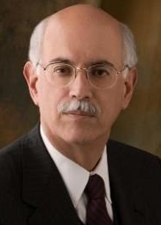
North Korea’s authoritarian government is responsible for the devastating famine that killed as many as 2.5 million of its citizens in the 1990s, even though it did not deliberately set out to do so, asserted Andrew S. Natsios, a former administrator of the US Agency for International Development (USAID) and now director of the Scowcroft Institute for International Affairs at the Bush School of Government and Public Service at Texas A&M University. Natsios offered expert testimony in Washington at last week’s hearing of the UN Commission of Inquiry into Human Rights in North Korea.
Unlike the Stalinist famine in the 1930s, which was designed to force collectivization and eliminate the kulak class of landed peasants, the North Korean regime’s refusal to adopt policies which would have mitigated the situation was based primarily on the fear of losing power, said Natsios in his testimony.
The UN Commission is studying violations of the right to food and determining accountability for the Great Famine as well as possible crimes against humanity. They will present their findings and recommendations to the UN’s Human Rights Council in March.
In 2001, Natsios published “The Great North Korean Famine,” a book based on extensive research with agencies and individuals involved in the area as well as interviews with North Korean defectors. He concluded that even if natural causes had been one of the factors contributing to the famine, once it knew about the problem, Kim Jong Il’s government did not act to address it.
“He was in charge, he was responsible, he knew what was going on, and he chose not to buy food and give it to the people,” Natsios said. “The leaders had to know the effects of the famine, since government reports showed huge drops in children’s heights and weights due to malnutrition.”
It was not incompetence that exacerbated the problem, but rather a deliberate policy decision that favored survival of the regime rather than aid to the population, Natsios said. He told the Commission that the North Korean government has violated their obligation to protect people’s right to food by implementing misguided policies, hindering aid and withholding food from those considered to be disloyal to the regime.
“The government is responsible for the failure to feed their people, to reform their economic system, and for putting the maintenance of their own power above all,” Natsios said. Prior to joining the Bush School, Natsios was a Distinguished Professor in the practice of diplomacy at Georgetown University and Administrator of USAID from 2001-2006. During that time he managed reconstruction programs in Afghanistan, Iraq and Sudan.